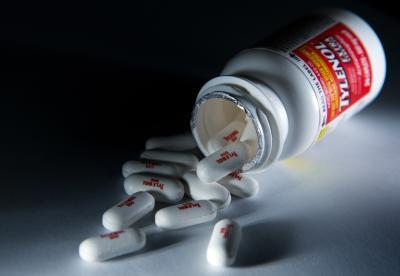

Either there is full resolution of hepatotoxicity or fulminant liver failure progresses to multiorgan failure and death.


If injury is severe, then coagulopathy studies (PT, PTT, INR) may increase. Antiemetics: ondansetron, metoclopramide especially important to give with PO NAC. AST and ALT begin to rise, and possibly bilirubin. Patients may begin to develop RUQ pain, although sometimes they are clinically asymptomatic. Taking more than the recommended amount of acetaminophen. Stage 2 (24–72 hours): Hepatic injury (hepatotoxicity). Research has shown that acetaminophen is a major cause of acute liver failure in the United States.The vague, nonspecific symptoms of this stage might include nausea and vomiting, diffuse abdominal pain, and general malaise. Stage 1 (0–24 hours): Preclinical toxic effects with minimal signs and symptoms, possibly asymptomatic, and often normal liver function tests.


 0 kommentar(er)
0 kommentar(er)
